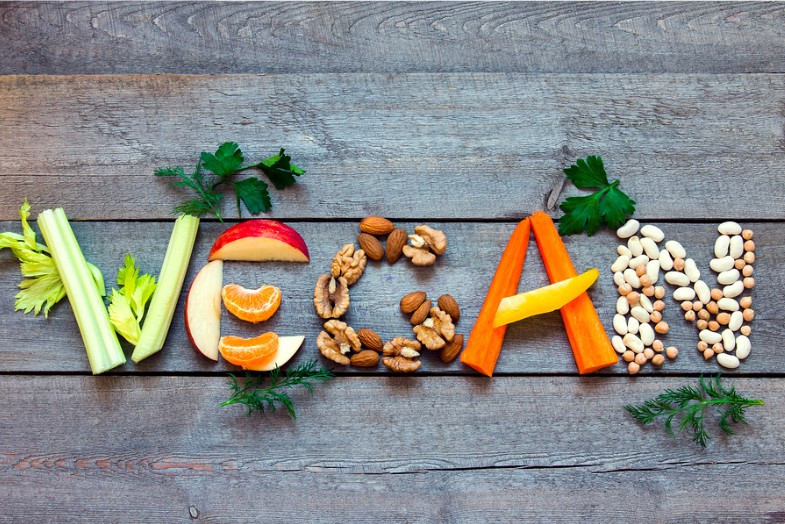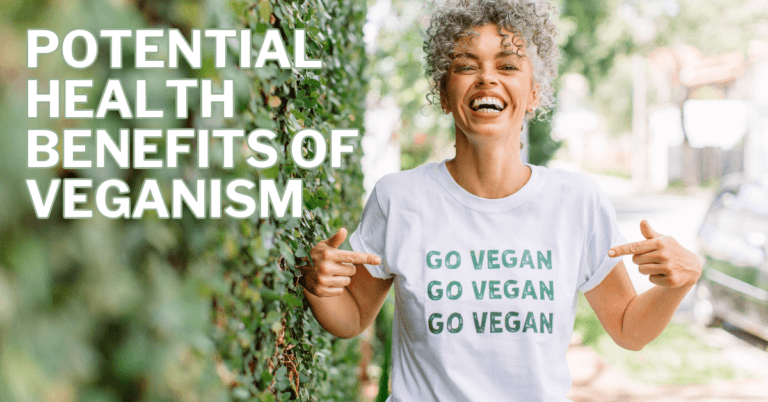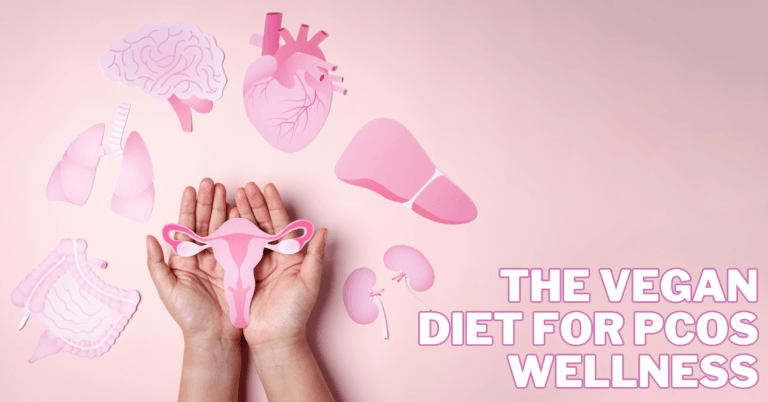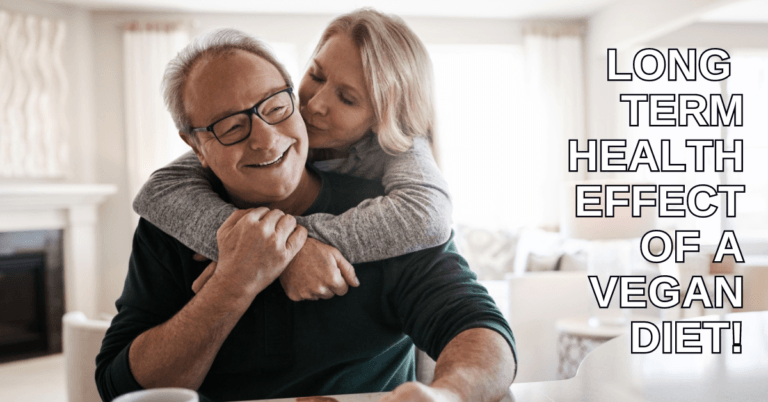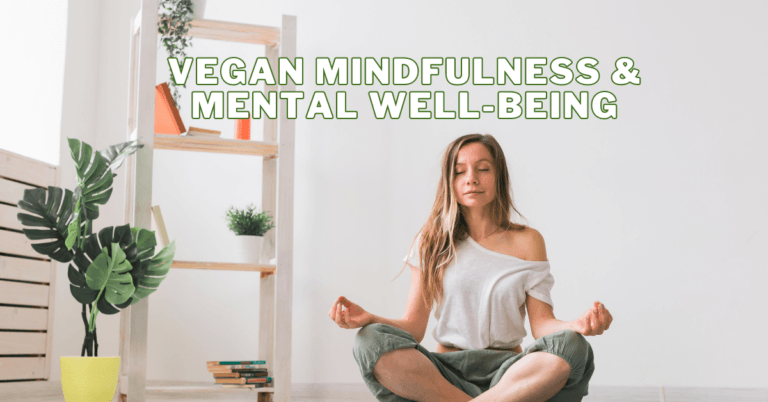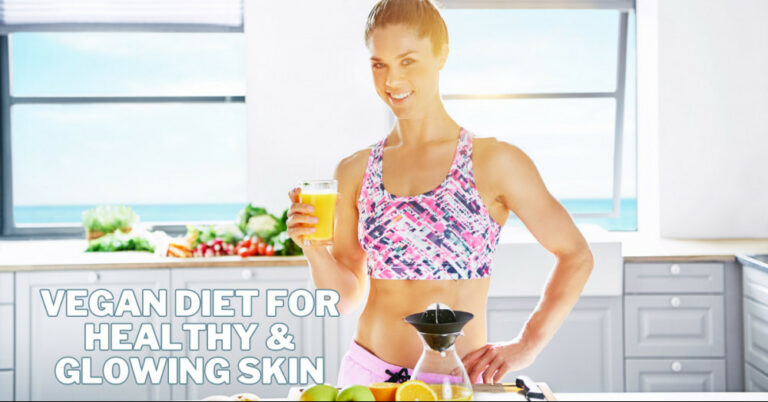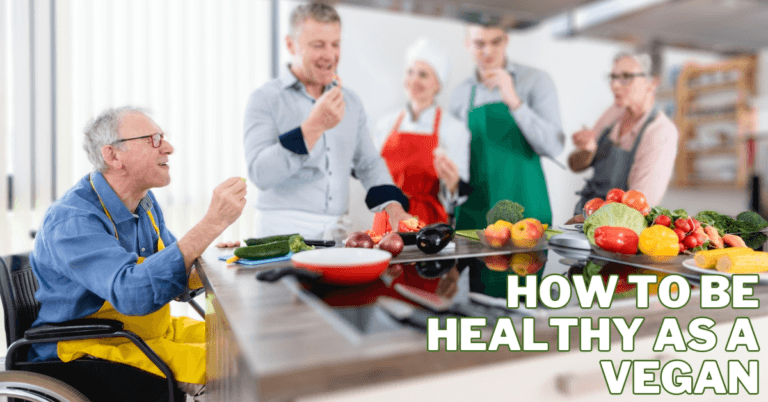How to Be a Healthy Vegan

How To Be a Healthy Vegan
When you go vegan, it seems like everyone assumes you're simply a healthy queen who eats kale smoothies and tempeh grain bowls all the time. While I'd like to answer yeah, those are the facts. I'll let you in on a little secret. As fantastic as it sounds, it isn't always the case. Because, well, French fries, too, are vegan.
“While a well-planned vegan diet may be extremely healthy, simply being vegan does not imply that one is consuming nourishing food,” explains Lauren McNeill, RD, MPH, the vegan nutrition expert behind Tasting to Thrive.
With so many vegan alternatives on the market these days, consuming primarily highly processed foods like chips, cookies, cakes, sweets, and convenience meals is absolutely doable. Even some of the most ostensibly healthful vegan goods on the market aren't necessarily what they seem.
What Is Veganism
“Veganism is a way of living which seeks to exclude, as far as is possible and practicable, all forms of exploitation of, and cruelty to, animals for food, clothing or any other purpose,” according to Veganism.org. But, Veganism is much more than simply eating well.
“Veganism encompasses a set of related ideas, beliefs and practices, including but not limited to the following:
- Vegetarianism,
- Ethical veal farming,
- Vegan dairy,
- Veganism,
- Animal rights,
- Environmentalism,
- Anti-speciesism,
and a variety of other forms of non-violent activism focused on creating a more compassionate and humane world for animals.” You may be thinking, “But I want to eat vegan, OK?
Others select this diet as an ethical effort to abstain from animal suffering. On the other hand, others couldn't fathom life without dairy, eggs, or even leather, although avoiding all animal products can help lower the risk of certain diseases. Veganism is a relatively new diet, but its growing popularity indicates that more people are becoming aware of its benefits and incorporating it into their life.
Why Do People Choose This Diet
There are many reasons people go vegan, but the most common reasoning I've heard is that people are looking for a way to be better in the kitchen. “I decided to eat vegan because I always figured it would make things easier in the kitchen,” one girl told me, explaining that she makes her own pasta and vegan cheese from scratch. “And I just couldn't stand to eat ice cream while feeling like I was supporting that evil dairy industry.”
Another said she didn't eat meat at all because she didn't want to support animal agriculture. Several people have told me they're looking for a healthier way to eat, but also that they want to try out different cuisines. “I feel healthier not eating meat. However, I don't really enjoy cooking, so I eat other foods,” one girl said. There are several reasons why people choose to be vegan. It can be principle-based or something you really want to try out.
Veganism is one of the greatest methods to lose weight, according to most weight-loss websites. Naturally, some may cite the numerous health benefits of greater energy and better digestive system functioning. These health advantages will remain constant, but the diet's approach to weight loss is genuinely innovative.
It allows vegan foods to make up the majority of your diet, allowing you to lose as much as 15 pounds per month on vegan meals alone. As a consequence, you can sustain your weight loss even if you don't gain weight. You also don't have to go all-in and exclude specific items from your diet; you may integrate them in little amounts.

You Are Not Always A Healthy Vegan
“Is veganism healthy?” has been a topic of debate for as long as the diet has had a name (interesting fact: veganism was ‘established' in 1944). The vegan diet, which differs from the conventional Western steak-and-potatoes diet, excludes all animal products such as dairy, meat, and eggs. While worries about protein and calcium consumption are frequent, a balanced vegan diet consisting of various plants may lead to a healthy lifestyle.
Given that the terms “vegan” and “healthy” are frequently used interchangeably, all vegan-friendly meals must be excellent nutritional options. Reconsider your position. While eating a plant-based diet is beneficial to your health (as well as the welfare of animals and the environment), this does not always imply that you should consume anything branded as “vegan.”
Junk foods such as Spicy Sweet Chili Doritos, Swedish Fish, and even Oreos are vegan-friendly despite high in mysterious ingredients and empty calories.
Simply because something is free of animal products, anyone might fall into the trap of mentally checking out when it comes to nutrition. It's shockingly simple to consume too much fat, sugar, and calories even while completely vegan.
Keep an eye on your diet if you're thinking about turning vegan, whether for health or other reasons. To stay satiated and invigorated, fill your plate with various veggies, grains, legumes, and fruits.
Also, even though a vegan diet can be super healthy, I'd be remiss not to acknowledge the fact that eating plant-based can also be more expensive than not eating a plant-based diet at all. And I'm not just talking about crazy costs like the total price of your new, at-home juicer.
Think about it, can you buy organic wheat flour, tofu, and soy milk at your local grocery store. These products all have to be purchased fresh or at a health food store. Plus, you have to be willing to spend a few extra bucks if you want to purchase organic, hormone-free products. If you've ever wondered how someone can afford to be vegan, consider this: vegan foods usually cost more than their non-vegan counterparts.
Common Misconceptions About Vegans
Veganism is a lifestyle, not a diet, meaning you can do whatever you want with it. You don't need to believe in any special health benefits. It's all about making an informed decision, which makes all the difference. Here are some of the most common misconceptions about vegans that I've experienced or learned from others:
- Being healthy is one thing, but losing a ton of weight? That's impossible when you're eating a balanced diet. As a vegan, you'll still need to pay attention to what you eat. Whether it's some lean protein or veggies, most diets encourage eating various fruits and veggies.
- People are frequently misled into believing that humans can only get protein from animal sources. This is untrue. There are several plant-based protein sources available: soya, lentils, pulses, broccoli, seaweed, peas and spinach, beans, brown rice, whole-wheat bread and pasta, quinoa, peanuts, cashews, almonds, pistachios and walnuts. Animals used for so-called protein are, incidentally, fed the aforementioned plant-based protein diet. So, you're consuming the same plant-based protein as before, but through animal dead tissue/extracted food.
- You must work hard to achieve it, just like anything else in life. You can eat a totally vegan diet, but if you constantly consume oil-based goods and don't exercise, no amount of dairy-free living can help you live a healthy life. It's critical to have a well-balanced diet, regardless of what you eat.
- Veganism is, without a doubt, closely linked to food and consumption, but it does not stop there. Veganism is a lifestyle choice. It's about refusing to participate in anything that causes cruelty or harms the environment. Vegans usually shun items that have been tested on animals or include traces of animal origin.

How To Be A Healthy Vegan
Even though my days of eating animal products are far behind me, my routine is by no means 100% vegan, nor do I claim to be one of those the cheese-tasting “100% vegan” people. I know what I ate during my years as a vegetarian was far from perfect, and I've read enough articles, blogs, and books to know the ups and downs of my own choices.
I'm a person who's always trying to improve, so if I say the word vegan, it's only to remind you that I know how to eat, too. The things that aren't vegan at all in my diet, like quinoa and beans, have their place, though, and I do enjoy them. All the foods that aren't 100% vegan, like the aforementioned French fries, are very “whole foods,” and I consider myself a whole food vegan.
These are based on my experience, but what do the experts say?
Prioritize Eating Vegetables
Instead of focusing on what they can eat on a plant-based diet, many people focus on what they can't. However, a wonderful dinner does not have to revolve around meat. Veggie-packed meals are a great choice for a variety of reasons:
- They're strong in vitamins (such as A and K) and minerals (like potassium),
- They're low in calories, and
They can help you feel more satiated since they're high in fiber.
Eat Different Kinds of Foods
On a vegan diet, it's critical to eat balanced meals that contain a range of nutritious foods to ensure you get all of the nutrients you require. Beans, for example, provide protein and fiber, while leafy greens are high in vitamins A, C, and K. To reap all of the advantages, choose fruit in every colour of the rainbow.
Swapping out refined grains, such as white pasta and white bread, for whole grains, such as brown rice and quinoa, adds iron and B vitamins to a vegan diet (nutrients that are stripped out when the grains are refined). And, the extra fiber from whole grains will help keep you full and may even help you lose weight.
Eat Whole Grain
Substituting healthy grains like brown rice and quinoa for refined grains like white pasta and white bread adds iron and B vitamins to a vegan diet (nutrients that are stripped out when the grains are refined). Furthermore, the additional fiber included in whole grains can help you stay fuller for longer and even aid in weight loss.
Don’t Make an Assumption that Vegan Products are Healthier.
Vegan cookies aren't always healthier for your waistline than traditional cookies. Furthermore, garlic bread prepared with vegan margarine isn't always better for your heart than garlic bread made with butter. Palm oil and coconut oil, high in saturated fats, are commonly included in processed vegan meals. Stick to whole-grain tortilla chips with guacamole, carrots and hummus, almonds and dried fruit, and whole-grain tortilla chips with guacamole. It's acceptable to indulge in vegan sweets now and again, but don't think of them as “healthy” just because they're vegan.

Food Tips For Vegans
The only thing that makes life on a plant-based diet a little bit more challenging is getting used to telling people you're a vegan. On top of that, you probably have to explain why you decided to go vegan or if you decided to go veg.
The good news is, I'm about to explain how you can make it look like you've always been one because you totally have! For a while, I kept to myself, but that was probably a mistake. I've changed so much since I switched to a vegan lifestyle, and people often ask why I chose to become a vegan. First, I had always been healthy. My eating habits had always been on point, so I knew that if I became vegan, I would be healthier.
Eat Omega 3 Rich Foods
Some nutrients will be difficult to come by even if you consume a range of healthful vegan meals. Omega-3 fatty acids DHA and EPA are crucial for eye and brain development and heart function. Omega-3 fatty acids are mostly found in fatty fish like salmon, but they may also be produced in tiny amounts by the body from ALA, a form of omega-3 found in flaxseed, walnuts, canola oil, and soy. DHA is now added to a range of foods, including soymilks and breakfast bars. DHA/EPA supplements produced from algae are also available.
Don’t Forget Your Vitamin D!
Vitamin D is mostly found in canned fish like salmon and sardines and fortified dairy products like milk and yogurt. However, it may also be found in fortified non-dairy milk like soy or almond milk and orange juice. Some UV-exposed mushrooms can also be used as a source. Our skin can take synthesis D during the summer months when the sun is stronger. Vitamin D has a daily value (DV) of 600 IU, although other experts believe it should be closer to 1,500 IU. Many people, even vegans, may need to take a supplement to reach such levels.
Increase Your Iron Intake
Iron is best obtained from animal proteins such as meat and chicken, another vitamin that vegans should be aware of. Vegans can acquire this mineral through beans, legumes, and leafy greens, but non-heme iron from plants isn't as easily absorbed as heme iron from meat (heme iron). Eat iron-rich meals alongside vitamin-C-rich foods, which helps enhance absorption, rather than calcium-rich foods, which can impede iron absorption, to get the most out of plant-based iron.
Be Aware of your B12 Intake
Animal foods, such as meat, fish, poultry, eggs, and dairy foods, are high in vitamin B12, a vitamin that helps our bodies convert food into energy and aids in brain function. Vegans can receive B12 through fortified cereals or energy bars, but they should consult with their doctor before taking a supplement. For most individuals, the DV for Vitamin B12 is 2.4 micrograms.

What Are The Benefits Of Going Vegan?
Dietary experts often recommend adopting a plant-based diet to reap a slew of health benefits, such as helping to lower cholesterol, prevent heart disease and manage weight. As I found out while researching, many of the health benefits of going vegan are attributed to lower animal products in the diet.
In fact, according to Harvard Health Publications, just eating 10 percent less meat (in comparison to a non-vegan diet) can decrease your risk of diabetes, heart disease and high blood pressure, as well as increase your lifespan by up to seven years. Additionally, you may want to take a closer look at eating to stay as healthy as possible. When and how to start going vegan doesn't need to be a big change that takes months of preparation.
Veganism is an ecologically responsible diet. It is aware of your lifestyle while caring for the greater good; as a result, weight reduction becomes more sustainable. Adopting a vegan lifestyle is a more long-term viable option. Many weight-loss plans emphasize temporary dieting, which entails restricting food consumption for the duration of the weight-loss plan.
Some people may spend up to a year without consuming any animal products or meat. However, most of the time, they require their bodies to acquire a tolerance to these drugs, which makes their hunger signals less accurate. Many of the most successful weight-loss studies had participants eat the same item every day, making it difficult to maintain the weight after the diet is interrupted.
What are the Risks of Going Vegan?
I'm not here to say, “don't be a vegan!” or anything. Just because it's vegan doesn't mean that you have to deny your fleshly or carnal desires. However, if you think about it, you'll lose a couple of potential things to go vegan. First and foremost, your junk food cravings will be gone. I know, I know, you'll need your doughnuts and your cheeseburgers, but maybe just one time a week?
In addition, you'll probably need to watch your calorie intake more closely if you're trying to lose weight. While you might not have to deal with a whole lot of dietary cravings, there are a few foods you'll have to cut out if you're going to remain vegan for good. That's because some foods aren't always vegan. Some meat substitutes, like soy, for instance, are also derived from actual meat.
With so many diets to choose from, finding one that works for everyone may be difficult. On the other hand, being healthy is about the nutrients you consume as well as the ones you do not consume. When it comes to veganism, there are specific foods and substances that you can't eat.
One of them is egg consumption. Eggs are an important part of any well-balanced diet. Protein, Vitamin D, calcium, and other vital minerals are all found in eggs, as well as a slew of additional advantages. Because veganism forbids the use of eggs, vegans are missing out on a vital source of nutrition. On the other hand, Eggs are not only a fantastic source of protein but also lipids, which are essential for weight loss.

Vegan Challenges
Vegan cuisine is definitely an evolving movement. Over the last decade, there's been a shift in diet and the food choices made. From cupcakes to cupcakes, meat alternatives, meat substitutes, and much more. You might love it, but are you following this all the way to its ultimate end? When you give it all up, where does that leave you? The answer is probably nowhere.
Because as fun as it is to go vegan and the marketing is a little enticing, you're only going to feel better if you're eating healthy enough and trying to be mindful of what you're eating, which can be kind of hard when it's incredibly easy to go through a drive-thru.
It's crucial to keep in mind that a vegan diet is only as healthy as you make it. It's tempting to eat too much “vegan” ice cream, pastries, and candy, but don't. You'll gain weight and have many of the same health problems as someone who consumes meat if you eat a high-fat, processed-food diet and eat excessive quantities.
Conclusion
Veganism is an entirely plant-based diet. Many vegans are excellent at following a well-rounded diet of quality, wholesome foods. While eating an entirely plant-based diet may seem simple, it can be challenging at first. Always try to do everything in a balanced phase, and then you will get great results in being a vegan!
I trust you enjoyed reading the article on How To Be A Healthy Vegan. Please stay tuned. There are more blog posts to come very shortly.
JeannetteZ
Your Opinion Is Important To Me
Ideas? Thoughts? Questions? I would love to hear from you. Please leave me your questions, experience, and remarks about How To Be A Healthy Vegan in the comments section below? You can also reach me by email at Jeannette@LivingTheVeganLifestyle.org.
>>>Please click here to read more about the Vegan Diet on Wikipedia<<<
Here are some links to some of my favourite articles:
Best Vegan Chicken Nuggets In Canada
Vegan Food That Is Shockingly Unhealthy
Vegan vs Vegetarian Is One Better Than The Other

